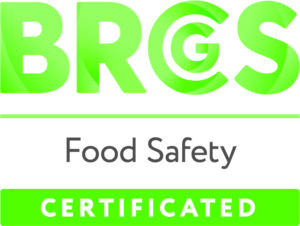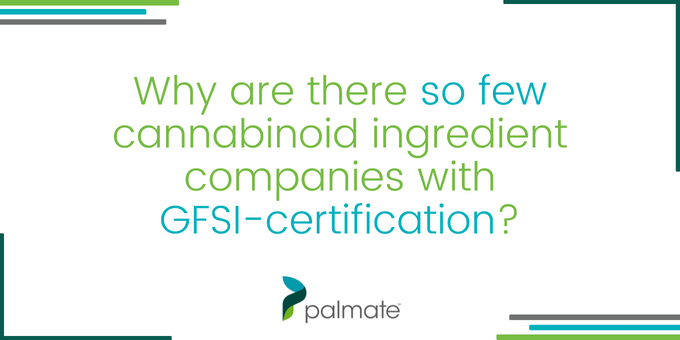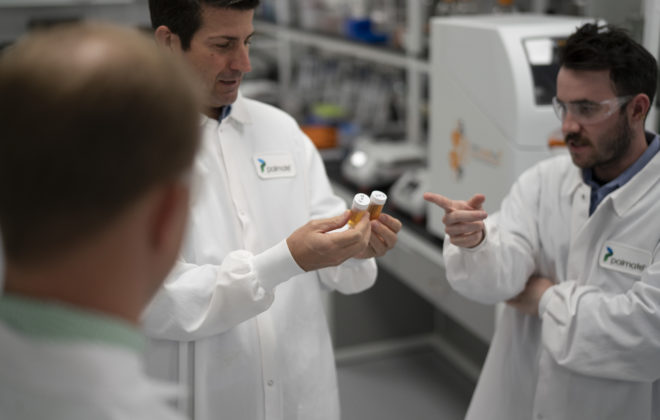
GFSI-Recognized Certification: How Cannabinoid Ingredient Suppliers Can Help Manufacturers Succeed
How can CBD ingredient companies help CBD and other cannabinoid-infused products live up to their full market potential?
By meeting the same food safety and supply chain validation requirements that major food, drug, and mass retailers (“FDM”) require for many of the ingestible products they carry. The best way to do that is to achieve a certification recognized by the Global Food Safety Initiative (GFSI).
A GFSI-recognized certification is an important, often requisite, criterion for verifying that companies in the food and beverage supply chain are meeting a high standard for food safety and food quality.
We explore why suppliers with a GFSI-recognized certification could be critical for elevating the status of the hemp-derived products industry, gaining buy-in from major brands and retailers, and ensuring that products are ultimately safe for the public.
Recognizing the need to legitimize hemp-derived ingestible products
Hemp has long been stigmatized. But why? One major reason is that hemp and marijuana are both cannabis plants and have therefore been categorized together, including as Schedule I substances under the Controlled Substances Act. This fact also helps explain some of the legal challenges that the hemp industry has faced historically.
Importantly, the Agriculture Improvement Act of 2018 (aka the 2018 Farm Bill) removed hemp and hemp-derived substances from the list of Schedule I controlled substances, while marijuana remains on that list.
Unfortunately, history and the connotations of cannabis often lead to hemp being guilty by association with marijuana, even with the hemp industry’s legal progress. This issue is now compounded by many companies that are exploiting legal ambiguity to produce and sell intoxicating marijuana products promoted as “hemp-derived” products.
This pursuit of loopholes and legal gray areas by “hemp product companies” is likely to add confusion and prolong a strong association with marijuana, which could further delay recognition that naturally derived hemp products have the potential to improve wellness. However, hemp processors who achieve GFSI-recognized certification can help change attitudes and generate trust, especially from major brands and retailers.
Why a GFSI-recognized certification is so important
The GFSI is a collaborative global effort by many of the largest retailers, manufacturers, and brands in the world that has resulted in a broad-based food safety community.
The organization’s benchmarking efforts and the select certifications that it recognizes have come to be the gold standard in food safety and quality assurance.

That’s why the most discerning brands and retailers around the world require their suppliers to have a GFSI-recognized certification such as the Brand Reputation through Compliance (BRCGS) Global Food Safety Standard as part of their supply chain validation.
When a cannabinoid ingredient company goes through the effort to achieve a GFSI-recognized certification, it’s a testament to their belief that consumers deserve trustworthy ingredients in their products.
On a practical level, a cannabinoid ingredient company with a GFSI-recognized certification also sends a powerful message to major brands and retailers. In essence, it’s saying, “Hemp-derived ingestible products are legitimate. WE are legitimate. And that’s according to the most rigorous food safety standards in the world.”
Why so few cannabinoid ingredient companies have obtained GFSI-recognized certification
Here at Palmate we are BRCGS-certified, making us one of just a few CBD/cannabinoid ingredient companies in North America with a GFSI-recognized certification—and the only one in the state of Florida. (Palmate has multiple key certifications; find out more about our other certifications here.)
But if holding such a certification is so important, why are there so few CBD/cannabinoid ingredient companies who have achieved this distinction?

In a word, it’s difficult. It requires significant time, expense, and knowledge to assemble expert personnel who understand how to deploy a food safety and quality system across an entire organization that meets GFSI standards.
More specifically, that system demands complete supply chain validation and detailed record-keeping.
It also requires incorporating numerous safety-oriented steps throughout the production process, and most hemp ingredient companies simply do not have the necessary insight, experience, or resources to do that.
The next move for manufacturers: Look for a certified ingredients partner who leads, not reacts
Once regulatory clarity is provided at the federal level and major brands plan for production of ingestible hemp-derived products on a national scale, they’ll want to mobilize quickly with a trusted supplier.
Here at Palmate, we believe that a GFSI-recognized certification will be a requirement for many manufacturers and retailers. And where it’s not technically a requirement, it will serve as a clear differentiating factor when companies are vetting potential suppliers.
Palmate’s dedication to product safety and quality has driven our decisions since the company’s inception and is evidenced by our pursuit and achievement of BRC certification.
Our BRC certification reflects the quality-by-design approach we take to everything we do. That means we don’t react to market forces or impending regulatory changes and then attempt to retrofit our systems.
Instead, we lead by example and hold ourselves to a higher standard of safety and quality—for our manufacturer partners, for the retailers who carry their products, and ultimately for the consumers who buy them.
Wondering how Palmate can provide cannabinoid ingredients that unleash the full potential of your products?
Related Posts
Recent Posts
- 7 Questions to Help You Find a Trustworthy CBD Ingredient Company
- Why CBD Companies Should Re-Examine Their Marketing Content—NOW
- Qualifying an Ingredient Supplier for Your CBD-Infused Beverage Products: 5 Crucial Questions to Ask
- The Logical Leap: 5 Reasons Why You Should Integrate CBD into Your Business
- GFSI-Recognized Certification: How Cannabinoid Ingredient Suppliers Can Help Manufacturers Succeed
Categories
- Best Practices (4)
- CBD and Business (3)
- Certifications (1)



